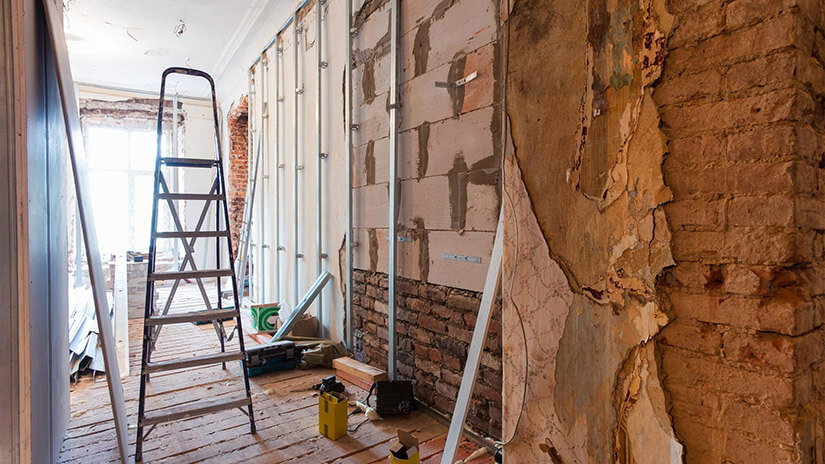kitchen tips
How To Fire A Contractor Without It Backfiring
Maybe you’ve noticed that your floor isn’t quite level, or you’ve found some other red flags through working with your contractor. It could be time to part ways. However, you should take the decision to fire your contractor seriously. You can’t just fire a contractor because the molding looks a little bit different than you thought it would. You need a good reason.
In this article, we’ll go over how to fire a contractor the right way so you can avoid a stressful situation or financial surprise.
What You Need To Know
Make sure you have a good reason to fire the contractor: a material breach of contract. You may be required by state law to give them a chance to fix the work first. Always fire the contractor in writing and cite the reasons why. Be prepared to hire a lawyer if the contractor disagrees with you.
Make Sure You Have A Good Reason

What you need to have is evidence for a material breach of contract. A material breach allows you to execute a termination for cause. This is different from a termination for convenience, which is another way that contracts can be ended. A termination for convenience clause allows you to end the contract for almost any reason. But these clauses are less common on home improvement contracts.
Now, there isn’t one standard reason for a termination for cause. You have to look at the text of the contract. The contract lays out exactly what the contractor commits to provide, and if they fail in a significant or material way, you can terminate the contractor.
Here are some common things that can constitute a material breach:
- The job site is understaffed
- The schedule is consistently behind
- The contractor hasn’t paid subcontractors, laborers, or suppliers
- The materials and equipment used on the job are inferior to what was outlined in the contract
- The contractor failed to communicate multiple times
One instance an issue isn’t enough for termination. There needs to be a pattern of sub-par work or service.
Take Things Slow
When you started your home improvement project, you signed a contract (or at least you should have). That’s a legally binding written agreement for both parties, not just the contractor.
If you don’t have a good reason to terminate the contract, you could be held liable to pay for lost profits. You can’t just fire the contractor because they showed up late a few times or because they are hard to get along with.
When you notice that you are unsatisfied with something, don’t just fire the contractor right away. It’s a good idea to keep a journal and take photos and video of the work. In the event that the contractor disagrees with you about the termination, you can use this as evidence in a dispute.
Whether the contractor is late on completing the work, or the work isn’t up to par, you should first send a letter stating your concern. You can request a new completion date or that the contractor spends more time on whatever the issue is.
If they are unresponsive, you can then send a second letter. Restate the issue and then add that if the contractor doesn’t move towards resolution, you’ll be forced to look into options for termination. Termination should be the last result.
At this point, you can also file a complaint with your state’s contractor license board. Each state has one, just search for your state and add ?contractors license board.? Here are a few:
Follow The Rules

There are two things that we mean by rules. First, your state has rules that govern home improvement contracts. For example, you may be required to give the contractor a 30-day cure period, which gives them time to fix their mistakes.
A good construction contract will also include a provision for termination. Be sure to follow what it says. Your contract could even outline specific cases in which termination is acceptable. However, if it’s silent about the particular problem that you have, it could be tricky to terminate the contract.
Many contracts require a notice of termination to be mailed before termination can happen.
This is the professional thing to do, but be sure to see if it’s required on your contract.
If you are unsure in any case, it’s a good idea to get legal counsel. Also, make sure you’ve paid the contractor for the work that has been done. A contractor can put a lien on your property if they open up a dispute about the termination and haven’t been paid.
Fire The Contractor In Writing
Once all the other conditions have been met, you can send a letter of termination to the address specified in your contract. Include your reasons and evidence, and a summary of previous notices that you’ve sent.
![See your dream kitchen in 3D [GET YOUR FREE DESIGN]](https://cdn.kitchencabinetkings.com/blog/wp-content/uploads/see-your-dream-kitchen-in-3d.webp)
![Contractor Discount Program: Offering contractors and builders special volume discounts on all applicable orders [LEARN MORE]](https://cdn.kitchencabinetkings.com/blog/wp-content/uploads/contractor-discount-program.webp)
![Explore our photo gallery [GET INSPIRED]](https://cdn.kitchencabinetkings.com/blog/wp-content/uploads/explore-our-photo-gallery.webp)
![What everyone is saying about KCK [READ REVIEWS]](https://cdn.kitchencabinetkings.com/blog/wp-content/uploads/what-everyone-is-saying-about-kck.webp)
![Get a cabinet sample [SHOP SAMPLES]](https://cdn.kitchencabinetkings.com/blog/wp-content/uploads/get-a-cabinet-sample.webp)
![Pay over time, on your terms with Affirm [LEARN MORE]](https://cdn.kitchencabinetkings.com/blog/wp-content/uploads/pay-over-time-on-your-terms-with-affirm.webp)
Thank you I’m going to fire my contractor today!
Had a few things scheduled for repair at my house shed,deck.The contractor came in did some work replaced things that were not the right size and did not tell me. Put on a roof that is crooked and leaking. Nails are hanging out that are hazardous. Now he wants me to pay him almost 2,000 to come back and finish things. I am afraid that he will not complete the job that is safe and satisfactory.
Hi Gail- We are sorry to hear that you are having trouble with your contractor and this behavior is unacceptable. I would be very hesitant to continue using him/her since this will likely not end how you want it to.
Best,
Andrew
What if the contractor was late a few times and the customer doesn’t like the work, can the customer fire the contractor based on that even when the job basically just started? Can the customer also issue a “no trespass” order ? I’ve had nothing in writing and no warning of dismissal. Just an email stating we’re parting ways and I am not to trespass on his property without his consent.
Hi John
I’m sorry for the late reply — this ended up in one of our spam filters. Due to the complexity of the situation, it would be best to reach out to legal counsel to review the signed contract and decide how to proceed.
Best,
Andrew